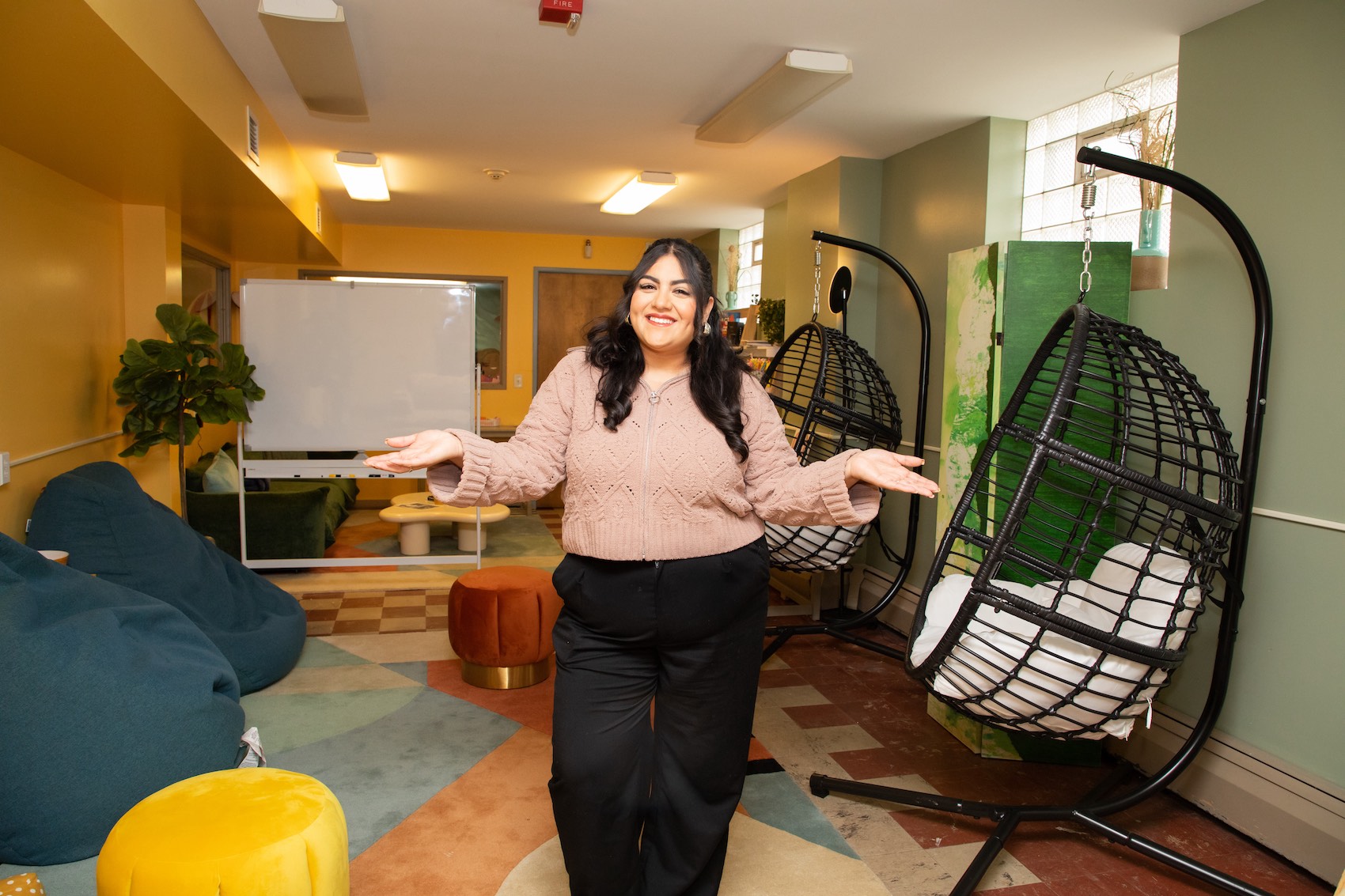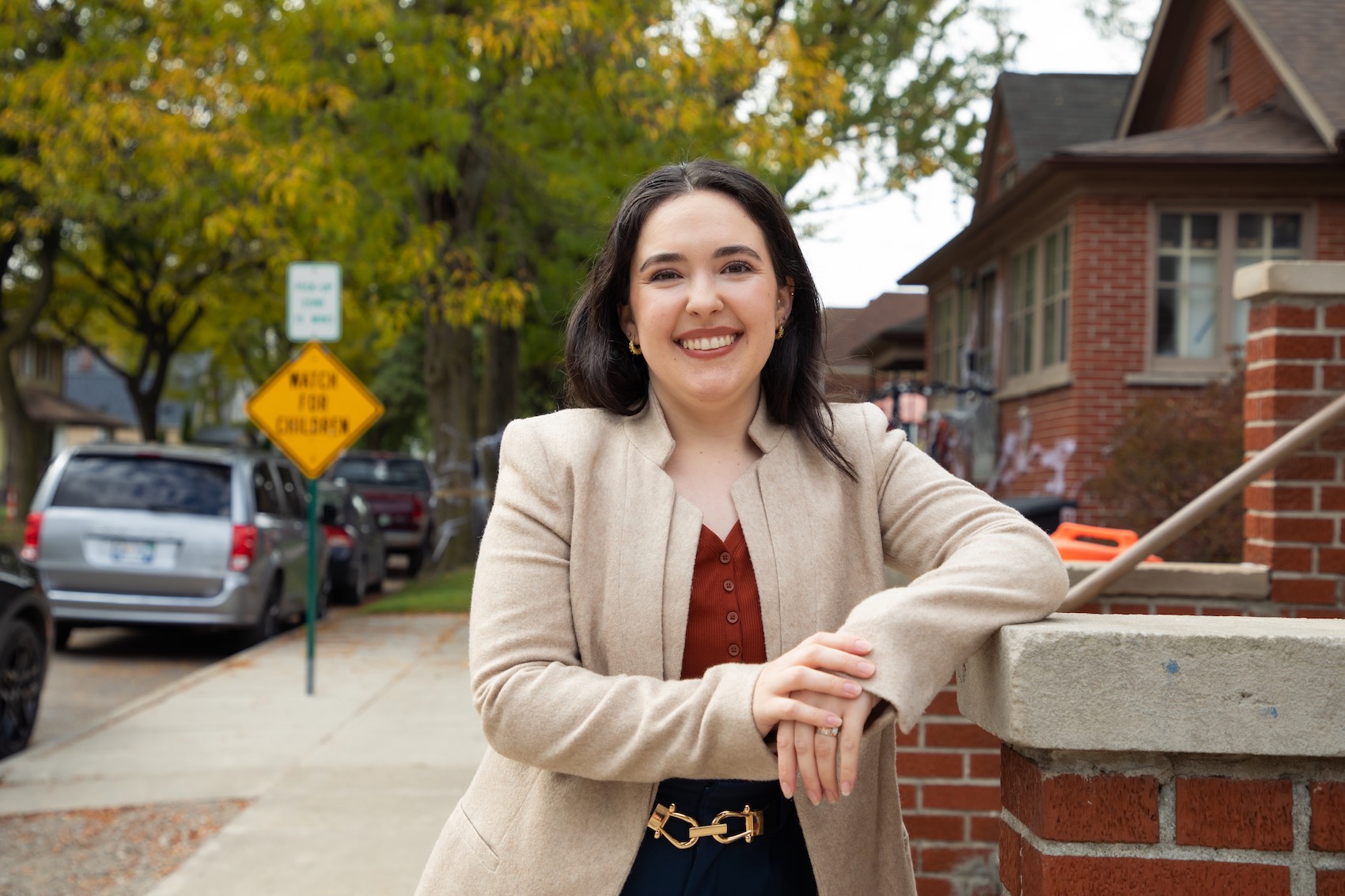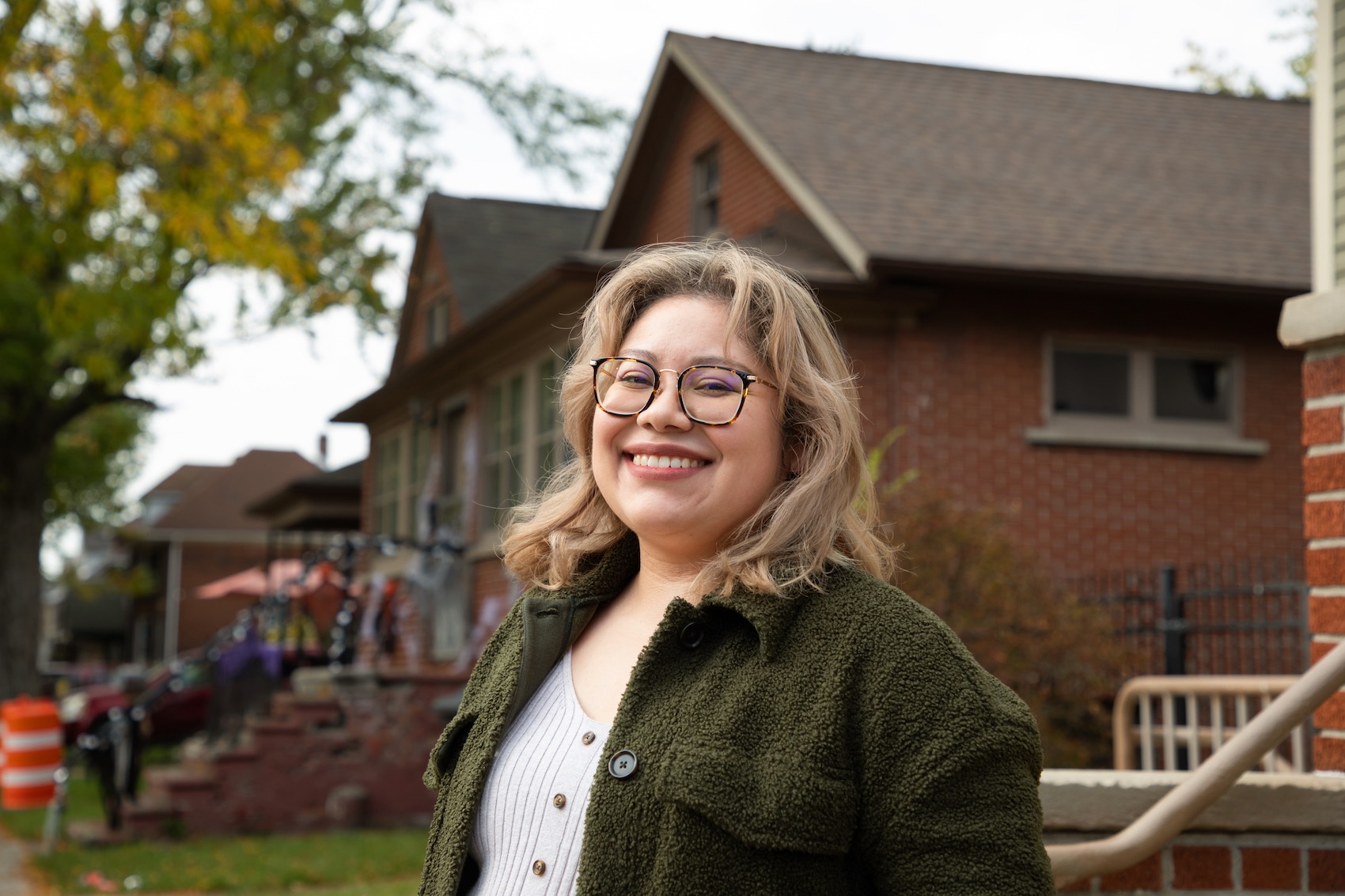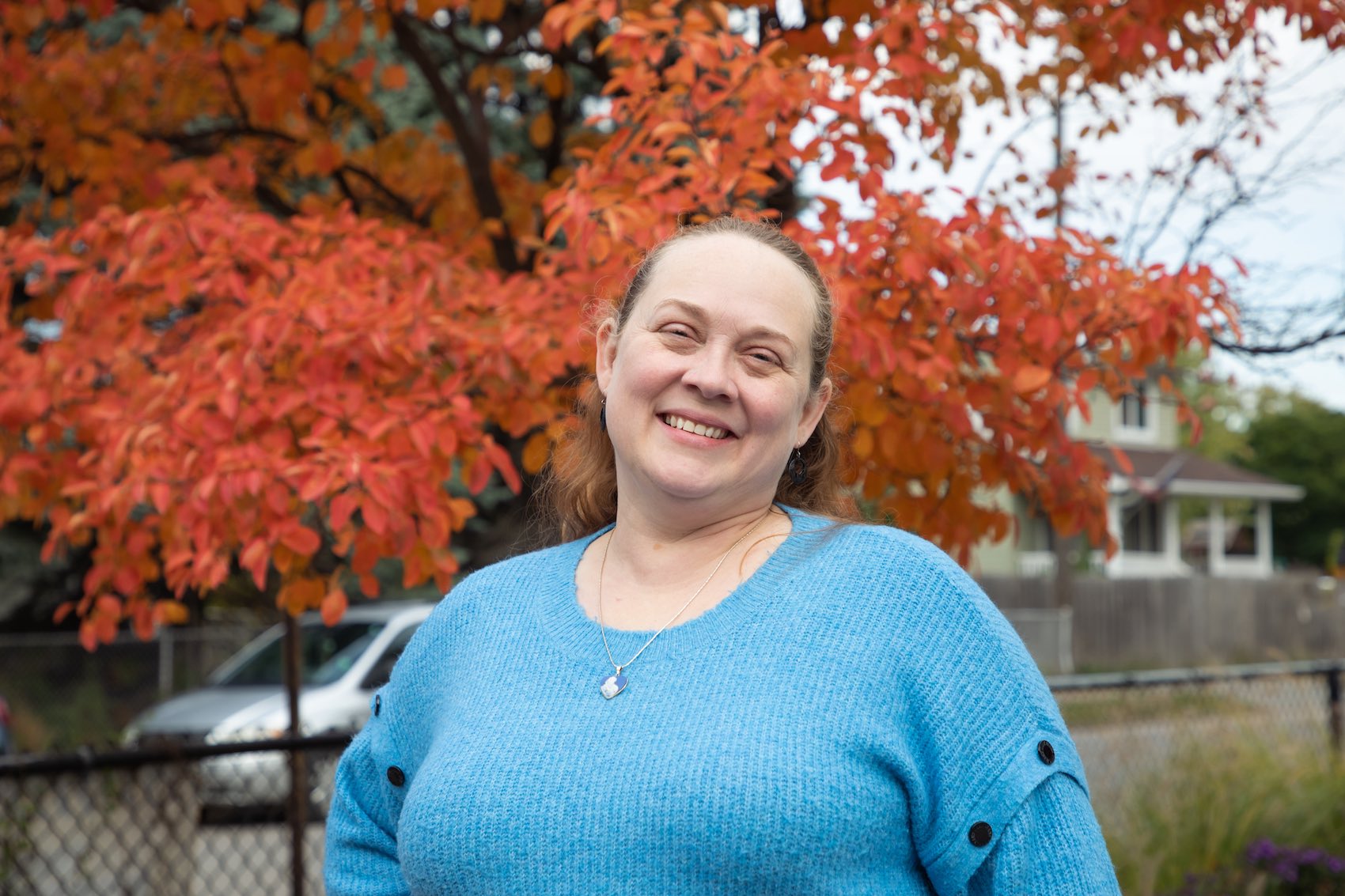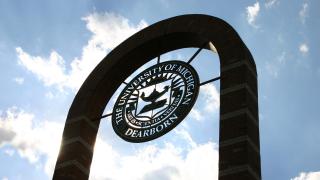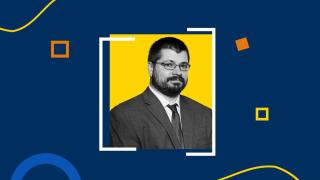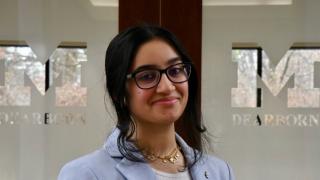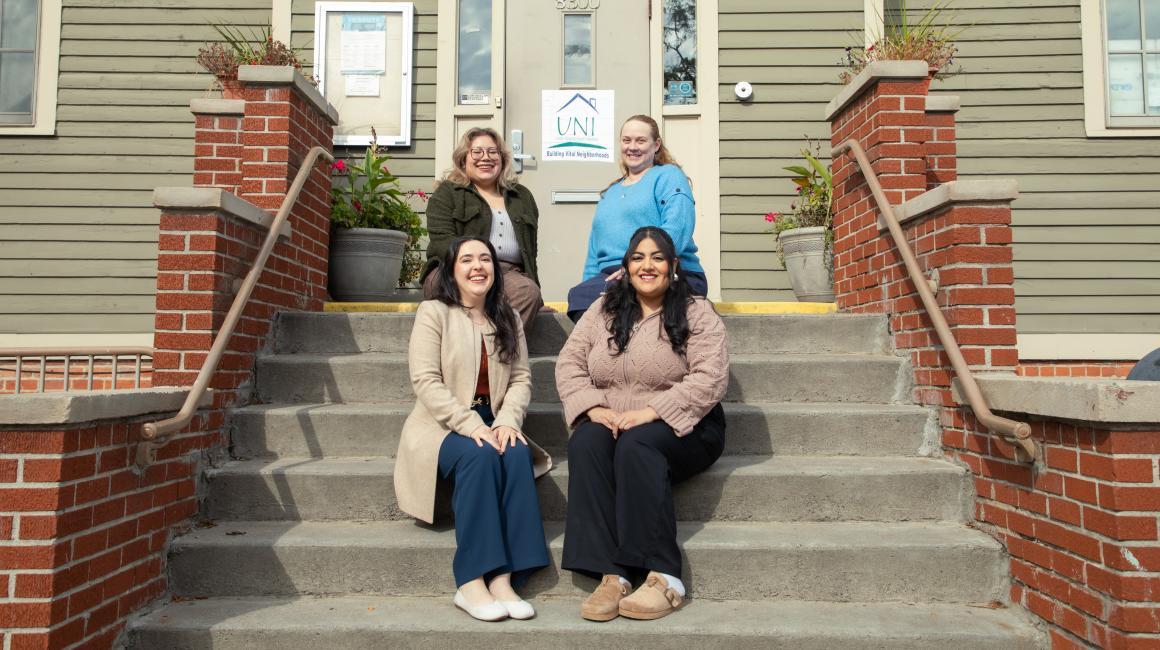
In the basement of a church-turned-community center in Detroit's Springwells neighborhood, Ana Alvarez offers a tour of a new Youth Mental Health Hub. With a beaming smile, she points out features of the space: a fresh coat of yellow and green paint, new couches and comfortable seating, a mural painted by young people from the neighborhood. She then draws attention to a corner of the room that will soon become a private space for professional counseling.
Alvarez, the youth leadership and outreach director at Urban Neighborhood Initiatives, first connected with UNI in 2012 through the Grow Detroit’s Young Talent youth employment program. Building out the organization's new youth-driven Mental Health Hub is part of her current role. It's one she feels well prepared for in part because of her educational background: Alvarez graduated from UM-Dearborn in 2019 with a degree in business administration and marketing.
Alvarez is in good company. She is one of four UM-Dearborn alumni currently working for UNI. Several other alums have transitioned to different organizations after their time there. There are many reasons UNI has drawn so many UM-Dearborn grads: Some grew up in the neighborhood and have had ties to the organization since childhood. Some came through internships. Others came after a career change. The constant, Executive Director Christine Bell says, is that “they all have a confidence that I believe UM-Dearborn fosters in its students. That is so critical.”
Originally called Neighborhood Centers Incorporated, UNI was founded in 1997 to address community issues in Springwells, a part of southwest Detroit. With a current focus on youth development, education and land use/economic development, the organization engages residents of all ages in efforts to create positive change in their neighborhood.

